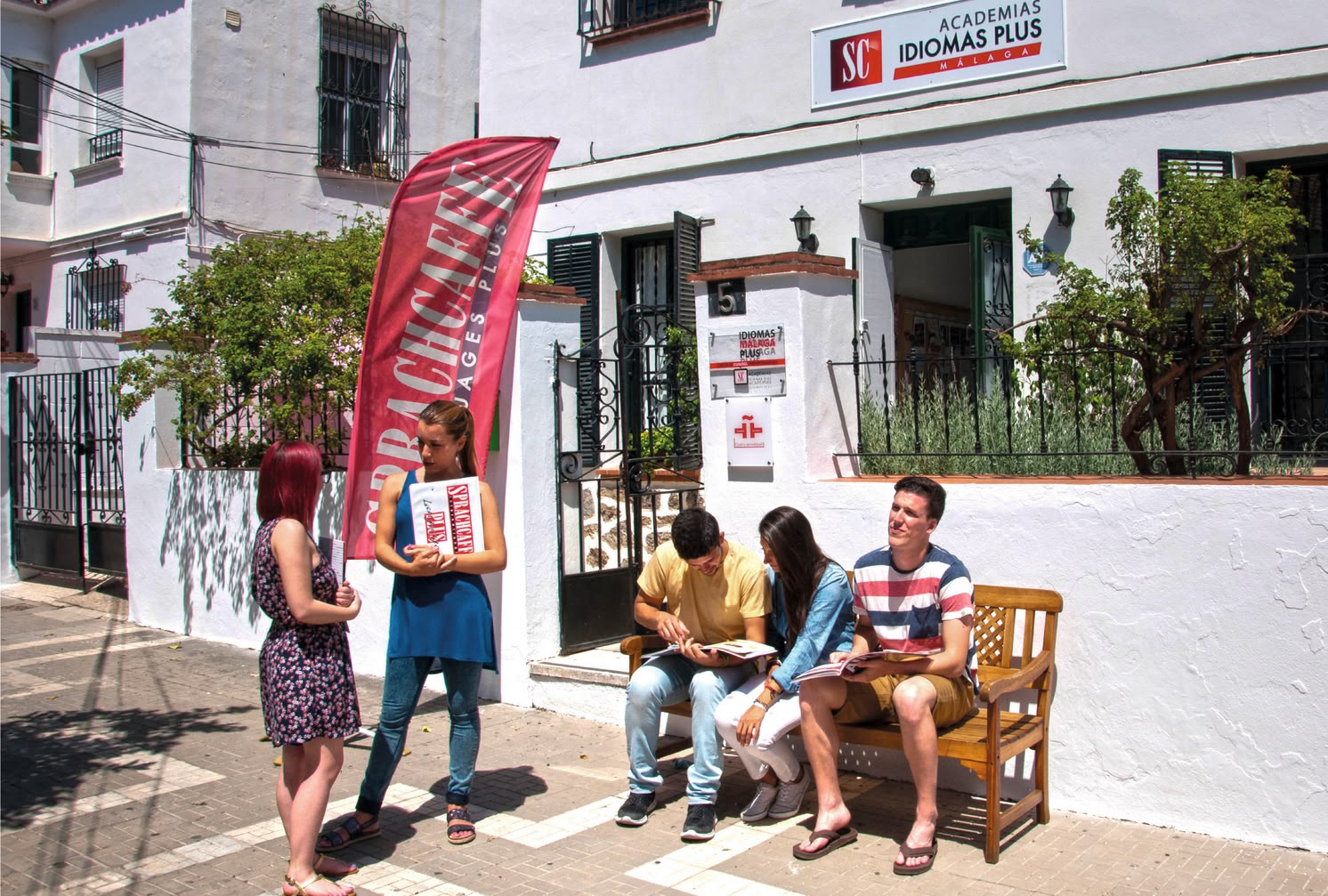
Language travel in Spanish
Take a language trip to Spain or Cuba with Sprachcaffe.
More information »Conjunctions are words or groups of words used to join words, phrases, clauses or sentences in a text, establishing grammatical and logical relationships between them. They are essential to improve the fluency and coherence of speech. Learn the types of conjunctions in Spanish with Sprachcaffe.
| Type | Explanation | Conjunctions | Examples |
|---|---|---|---|
| Copulativas | Unen elementos que son del mismo tipo o jerarquía. | y (e delante de i- o hi-); ni; ni… ni…; tanto… como…; así como…; igual… que…; lo mismo… que…; no solo…, sino también | María y Pedro estudian juntos. (María and Pedro study together.) |
| Disyuntivas | Indican opciones o alternativas excluyentes. | o (u delante de o-, ho-) | Puedes elegir té o café. (You can choose tea or coffee.) |
| Adversativas | Establecen contraste entre dos ideas o acciones. | pero, mas, sino (que) | Estudie mucho, pero no obtuve una buena calificación. (I studied a lot, but I didn't get a good grade.) |
| Distributivas | Expresan la alternancia o distribución de acciones. | o… o…; bien…, bien…; ya…, ya…; ora…, ora…; sea…, sea…; fuera…, fuera… | Unos estudian, otros descansan. (Some study, others rest.) |
| Explicativas | Introducen una explicación o aclaración sobre la información anterior. | es decir, esto es, o sea, mejor dicho, es más | Estudia bien, pues el examen será difícil. (Study well, for the exam will be difficult.) |
Want to improve your Spanish? Start your unforgettable language trip to the Spanish-speaking country of your choice now!
| Type | Explanation | Conjunctions | Examples |
|---|---|---|---|
| Causales | Expresan la causa o motivo de la acción principal. | porque, como | Estudia, porque el examen será difícil. (Study, because the exam will be difficult.) |
| Consecutivas | Indican la consecuencia de una acción. | que | Estudié tanto, que obtuve la mejor calificación. (I studied so much, that I got the best grade.) |
| Condicionales | Establecen una condición para que ocurra la acción principal. | si, como (+ subjuntivo) | Ejemplo: Saldré si termino mi tarea. (I will go out if I finish my homework.) |
| Concesivas | Aceptan una situación contraria a la acción principal. | aunque, si bien | Aunque hace frío, saldremos a caminar. (Although it's cold, we'll go for a walk.) |
| Finales | Indican el propósito o finalidad de la acción principal. | para que, a fin de que | Estudia, para que puedas aprender. (Study, so that you can learn.) |
| Temporales | Marcan el tiempo o la condición temporal de la acción principal. | mientras, luego que | Estudia cuando llegues a casa. (Study when you get home.) |
| Compartivas | Introducen una subordinada que se compara a la oración principal | que, como si | Viajo más ahora que cuando era una niña (I travel more now than when I was a kid) |
Conjunctions are fundamental for the structure and comprehension of the Spanish language, since they allow us to establish relationships between ideas and enrich written and oral communication. Some tips for learning conjunctions in Spanish are: Read books, articles, news and other materials in Spanish to find and observe how conjunctions are used in different contexts and create flashcards with the name of the conjunction on one side and its function or use on the other. In addition, at Sprachcaffe we recommend that, to improve your Spanish, you attend one of our Spanish courses in Madrid or Cuba. Ready for your language trip?

Take a language trip to Spain or Cuba with Sprachcaffe.
More information »
Enjoy a summer camp while learning a new language.

Learn Spanish from the comfort of your home with an online course.
More information »